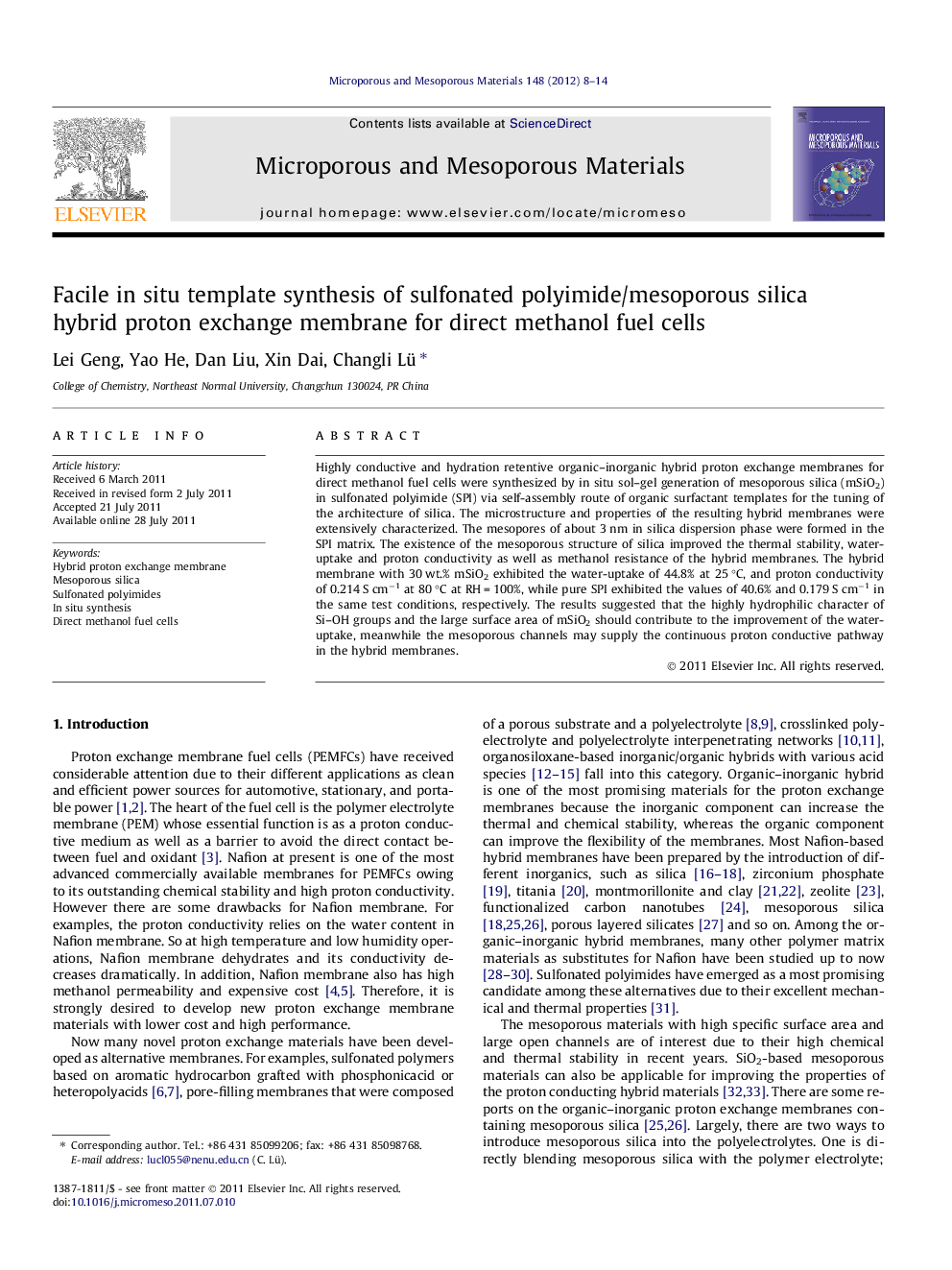| Article ID | Journal | Published Year | Pages | File Type |
|---|---|---|---|---|
| 74428 | Microporous and Mesoporous Materials | 2012 | 7 Pages |
Highly conductive and hydration retentive organic–inorganic hybrid proton exchange membranes for direct methanol fuel cells were synthesized by in situ sol–gel generation of mesoporous silica (mSiO2) in sulfonated polyimide (SPI) via self-assembly route of organic surfactant templates for the tuning of the architecture of silica. The microstructure and properties of the resulting hybrid membranes were extensively characterized. The mesopores of about 3 nm in silica dispersion phase were formed in the SPI matrix. The existence of the mesoporous structure of silica improved the thermal stability, water-uptake and proton conductivity as well as methanol resistance of the hybrid membranes. The hybrid membrane with 30 wt.% mSiO2 exhibited the water-uptake of 44.8% at 25 °C, and proton conductivity of 0.214 S cm−1 at 80 °C at RH = 100%, while pure SPI exhibited the values of 40.6% and 0.179 S cm−1 in the same test conditions, respectively. The results suggested that the highly hydrophilic character of Si–OH groups and the large surface area of mSiO2 should contribute to the improvement of the water-uptake, meanwhile the mesoporous channels may supply the continuous proton conductive pathway in the hybrid membranes.
Graphical abstractFigure optionsDownload full-size imageDownload as PowerPoint slideHighlights► In situ incorporating mesoporous silica improves the stability. ► Water uptake and proton conductivity depend on the content of mesoporous silica. ► Nanocomposite membranes exhibit low methanol permeability.
